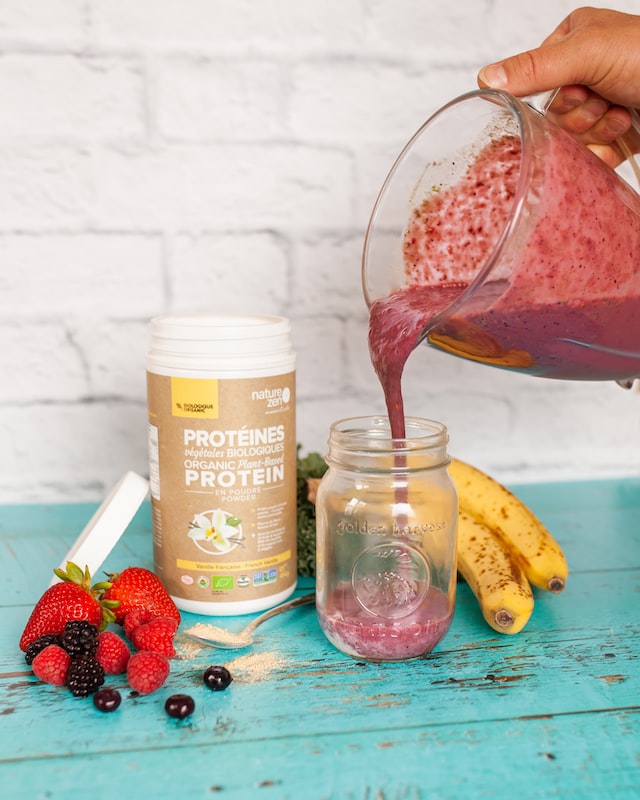Hundreds of various supplements can be found on grocery store and drugstore shelves. It may also appear that everyone you know is taking some sort of vitamin.

Supplements may be unneeded in many circumstances, or they may act as a safety net for people who are concerned about getting adequate nutrients. There is also a substantial body of data to support the use of a wide range of common supplements when medically required.
However, looking for a supplement might be perplexing. Continue reading for a summary of the top 11 supplements to consider.
Dietary supplements are not appropriate for everyone. Before incorporating supplements into your regimen, always consult with your healthcare professional to see if they are right for you and the recommended doses.
Multivitamins
While multivitamins are widely used in the general population, are they always necessary? Some persons are advised to take a multivitamin. These people include those who are pregnant or attempting to become pregnant, those who are breastfeeding, those who have a restricted diet, and those who have any ailment that may reduce absorption of nutrients, such as Crohn’s disease or celiac disease. These people have increased nutrient requirements or may not be obtaining enough nutrients from eating.
While some people use multivitamins to prevent disease or illness, science does not back this up. Individuals may also take a multivitamin as an insurance policy, and while there is no harm in doing so, it is always preferable to obtain nutrients through food.
According to research, taking a multivitamin does not provide any additional advantage to people who consume a well-balanced diet that includes a range of fruits and vegetables. Multivitamins are worth experimenting with, but they are not always necessary.

Omega 3s
Omega-3 fatty acids, which include ALA, SDA, EPA, DPA, and DHA, are important fatty acids. They are called necessary since the body does not produce them and we must obtain them from eating. Several studies have been performed to demonstrate the health advantages of omega-3 fatty acids, such as lowering the risk of cardiovascular disease, diabetes, cancer, Alzheimer’s disease, dementia, and depression. They can also aid in visual and neurological development, as well as mother and infant health.
The Dietary Guidelines for Americans suggests consuming a minimum of 8 ounces of fatty fish per week for individuals who may become pregnant, are pregnant, or are breastfeeding, and 8 to 12 ounces for those who are pregnant or breastfeeding. If you don’t consume fish or don’t eat enough of it on a weekly basis, taking a supplement can help.
One study looked at the impact of omega-3 fatty acid supplements on the gut flora. The study discovered that omega-3 fatty acid supplementation can promote a healthy microbiota composition and improve anti-inflammatory chemical synthesis. There’s also evidence that omega-3 fatty acids have an effect on the gut-brain axis.
Protein Shakes
While it is feasible to achieve your protein needs through diet, some people may find it more difficult, while others may have higher protein requirements. When you can’t obtain enough protein through meals, protein powder might be a quick way to supplement it.

Protein powder may assist anyone looking for a handy protein choice, persons trying to reach their protein needs, athletes, elderly adults, and people with limited appetite.
Protein powder has been shown in studies to help athletes increase muscle mass. The timing of nutrients after a workout has been found to be critical for effects.
Adding a protein drink after your workout, along with carbohydrates, has been found to increase muscle mass. Protein powder is an quick and convenient way to add protein to a drink, porridge, or yogurt.
Vitamin C
Vitamin C, aka ascorbic acid, is a water-soluble vitamin that is found in oranges, kiwis, strawberries, broccoli, spinach, and bell peppers. It is a necessary vitamin, which means that the body cannot create it on its own and that we must obtain it from food.
The recommended daily consumption of vitamin C for women is 75mg and 90mg for men, therefore we only need a small amount to meet our needs. Vitamin C has been linked to a variety of health benefits, including immunological support, blood pressure management, a lower risk of heart disease, improved iron absorption, and a lower risk of dementia.
While it is suggested that vitamin C be obtained from diet, there may be advantages to taking a supplement. Vitamin C is a potent antioxidant, and studies suggest that supplementing with it improves blood antioxidant levels by 30%. This aids the body’s battle against inflammation and lowers the risk of cancer. Furthermore, research show that taking a vitamin C supplement will help you recover faster from pneumonia and other diseases.
Vitamin D
Sun exposure is the best and most bioavailable source of vitamin D. Vitamin D is also contained in some foods such as fish, egg yolks, and dairy. Orange juice and plant milks are also enriched with vitamin D.
Most people will need to take a supplement to receive enough of this fat-soluble vitamin. Vitamin D is necessary for bone growth and immunological function through regulating calcium and phosphorus intake. Supplementation may also reduce the risk of multiple sclerosis, heart disease, and depression, according to research.
Magnesium
Magnesium is a mineral that performs various vital activities in the body. It is involved in about 600 activities, including energy synthesis, protein building, gene maintenance, muscle contractions and movements, and nervous system modulation.
While magnesium is found in many foods such as leafy greens, nuts, seeds, and beans, many individuals do not get enough from their diet and may benefit from a supplement.
These supplements may be effective for building muscle growth and boosting workout performance. Magnesium is also necessary for proper brain function and mood. Deficiencies have been related to an increased risk of depression. Research suggests that taking magnesium supplements may help minimize depressive symptoms.
Probiotics
Probiotics are becoming increasingly popular as both food and nutritional supplements. These are “healthy” bacteria found in our gut that are supposed to provide a variety of health benefits. They occur naturally in foods such as kefir, sauerkraut, kimchi, miso, yogurt, and kombucha. Probiotics can be purchased as supplements in the form of tablets, candies, powders, syrups, and teas.

Probiotics do not appear to provide many benefits to the general population, according to the research, thus taking them for general good health is not evidence-based. They may, however, be advantageous if you have certain health conditions.
Studies have been conducted to investigate the potential benefits of taking a probiotic for inflammatory bowel disease (IBD). This disorder comprises Crohn’s disease and ulcerative colitis. Taking a probiotic may aid in reducing symptoms by modulating the gut microbiota.
Curcumin
Curcumin is the primary active element in turmeric, a yellow spice commonly used in Indian and South Asian cuisine. While it has been utilized as a medicinal herb for hundreds of years in India, several recent research back up these assertions.

Curcumin is well-known for its potent anti-inflammatory and antioxidant capabilities. Cooking with turmeric adds a lovely color and a pleasant flavor to food, but it is difficult to achieve clinical effectiveness alone through cooking.
Curcumin pills may be effective in reducing illnesses associated with low-level inflammation, such as heart disease, cancer, metabolic syndrome, and Alzheimer’s disease, according to research. Curcumin is best absorbed in the bloodstream when combined with black pepper, so look for a supplement that has both.
CoQ10
CoenzymeQ10 (CoQ10) is an enzyme that aids in the production of energy in your cells. It is created naturally by the body, however its production declines with age. CoQ10 can be found in organ meats, fatty fish, soy beans, vegetables, nuts, and seeds, as well as supplements.
CoQ10’s primary function is in energy production, but it is also useful in treating heart failure, assisting with fertility, reducing headaches, enhancing exercise performance, decreasing insulin resistance, and lowering cancer risk.
One study found that taking CoQ10 supplements enhanced insulin sensitivity and blood sugar levels. In addition, a study of 420 persons with heart failure found that taking CoQ10 supplements relieved their symptoms and reduced their risk of dying from cardiac problems.
B12 vitamins
Vitamin B12 is a vital vitamin for bone health, red blood cell development. energy levels, cognition, and mood. It also helps nerve cells and DNA synthesis work normally.
Because B12 is largely found in animal and dairy products, vegans must take a supplement or receive injections. A lack of B12 can lead to a decrease in red blood cell production and megaloblastic anemia.
B12 is also necessary for preserving bone health. In one study, low vitamin B12 levels were linked to lower bone mineral density in 110 celiac disease patients. Supplements are a practical and efficient solution to prevent vitamin B12 deficits if you struggle to receive enough vitamin B12 through diet.
Zinc
Zinc can be present in many plant and animal diets and is involved in gene expression, immunological function, enzymatic activities, DNA synthesis, protein synthesis, and wound healing. While zinc can be found in foods like meat, seafood, legumes, dairy, eggs, nuts, and seeds, if you have a limited diet, you may not obtain enough zinc from food and may need to take a supplement.
Because zinc has a function in the immune system, taking a zinc supplement can cut the duration of the common cold by 33%. However, you should consult with a healthcare expert to determine how much is appropriate for you. Keep in mind that too much zinc (more than 50mg per day) might lead to a copper shortage.
A Final Thought From DigEnet
There are numerous reasons why taking supplements may be advantageous. Always examine your bloodwork for deficiencies before beginning a new supplement regimen. If you have symptoms such as weariness, weakness, mood swings, or difficulties sleeping, it may be worthwhile to investigate a supplement.
A supplement may also be good if you have any medical concerns such as heart disease, diabetes, or gastrointestinal diseases. Consult your healthcare professional for advice on the type and dosage of supplements to consider.
